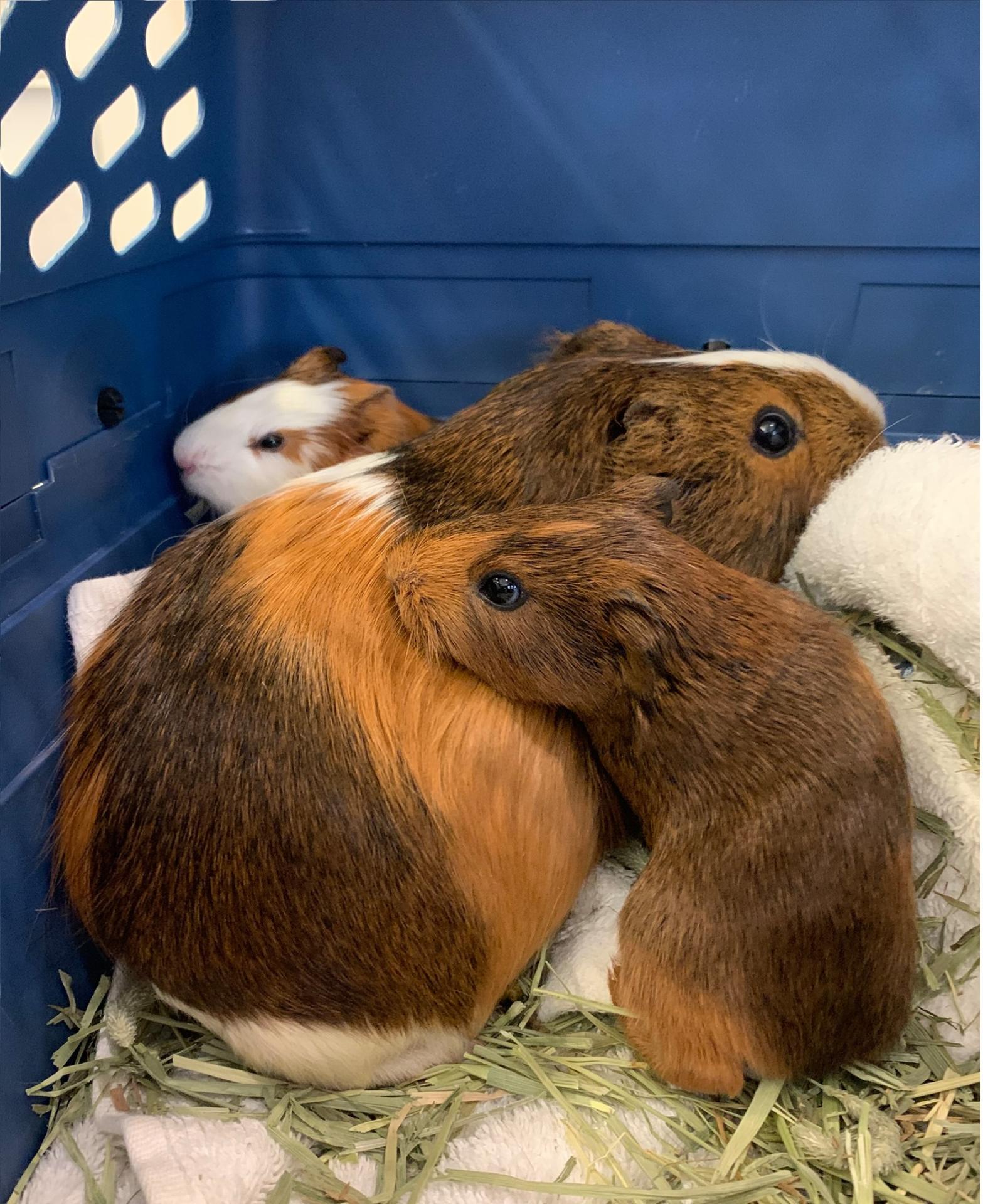 Veterinary Well-Check
Veterinary Well-Check
- It is important to have a complete physical exam by your veterinarian on your new pet and then annually.
- Your veterinarian will examine the eyes, ears, teeth, heart, and lungs and will palpate the abdomen, and examine the genitalia.
Laboratory Testing
- A fecal (stool) examination is also recommended to check for intestinal parasites.
- It is recommended that once a ferret is 3 years of age, in addition to yearly vaccinations, they have yearly blood work to better evaluate their health.
Housing
- The largest cage that you can afford and have room for is ideal.
- Cage bottom should be solid Plexi-glass, hard plastic, or stainless steel. Wire mesh bottoms should NEVER be used for a guinea pig because their feet could get caught and they may be seriously injured.
- Bedding should consist of a paper pulp product (like Carefresh or Yesterday’s News), newspaper, or computer paper. Go to www.guineapigcages.com for some great cage ideas.
- Guinea pigs can be housed together if they are of the same sex. However, you must watch for fighting, especially in males, because they may not always get along with each other.
- Female guinea pigs should never be housed with males after six months of age if they have never had a litter of babies. At this age, the pelvic bones can fuse and can prevent the babies from being able to be delivered. A cesarean surgery would be needed to fix this problem and it is a high-risk procedure for both moms and newborns.
Diet and Nutritional Supplements
- Timothy hay should make up the majority of the diet and guinea pigs should have access to fresh hay at all times.
- Sugary treats, such as yogurt drops, can cause excessive gas in the intestines and lead to serious health problems.
- Timothy-based pellets are a good supplement to the diet. Give approximately, 1/8-1/4 cup daily of pellets daily (www.oxbowhay.com) is more than adequate for most guinea pigs.
- Fresh water should be available at all times and it is important to clean the water bottle/bowl daily to prevent excess bacteria.
- Vitamin C is an absolutely essential portion of a guinea pig’s diet. The most reliable way to give vitamin C is to use a vitamin supplement administered by mouth. Greens and veggies do not contain enough vitamin C to prevent a deficiency and associated diseases. Vitamin C products that are placed in the water are not reliable because it is inactivated by light and the supplement promotes bacterial growth in the water. Pellets fortified with vitamin C are available, but processed in this way; the vitamin C is stable for only 90 days after milling. Check to see if your pellets have a “mill date” on the bag.
- Greens that are lower in calcium are a good choice for guinea pigs and some examples are:
- red and green leaf lettuce,
- escarole, watercress,
- clover,
- Swiss chard,
- bok choy,
- endive
- romaine lettuce.
- Small pieces of apples, oranges, or carrots can be offered as treats.
Avoid kale, dandelion greens, collard greens, turnip greens/tops, mustard greens, and broccoli due to their high calcium content.
Common Medical Problems
Overgrown Molars
Overgrown molars are a common problem in guinea pigs that can be easily treated.
Vitamin C deficiency
Vitamin C deficiency is very common in guinea pigs. Signs may include a rough coat, decreased appetite, swollen or painful joints and ribs, reluctance to move, poor bone and tooth development, spontaneous bleeding from the gums, crustiness around the eyes, and respiratory infections.
Other Common Issues
- Respiratory infections
- External parasites
- Bladder stones
- Foot sores (pododermatitis)
- A guinea pig that is “picky” or does not like hay may in fact have a medical problem.
